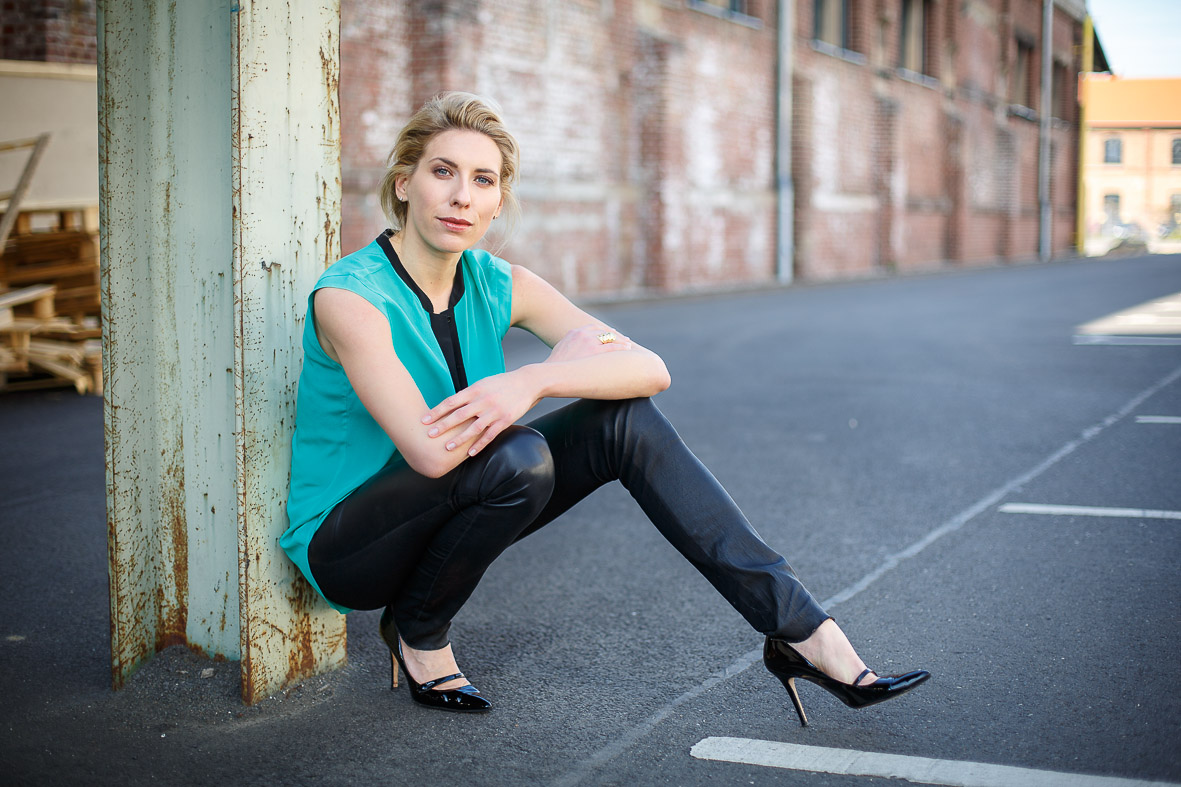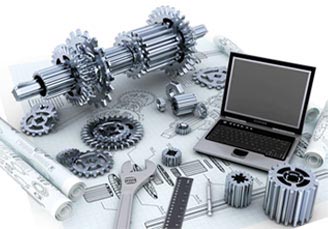
An interview with Lena Siep; Consultant, Writer and Presenter specialised in the Automotive and Motorsport Industry
Bio: Lena started her career as a junior press officer for BMW motorsports and later worked as a PR Manager for Panasonic Toyota Racing and McLaren Automotive. She led and implemented countless global and local PR campaigns for product launches, sports series and market entries in the motoring industry. Today, she advises businesses on communication topics and works as a presenter for car companies and motorsport events such as Formula E and WEC. She writes for a number of renowned motoring publications such as Christophorus and Porsche Klassik.
Mike: My first question is, tell me how you started out on your motorsports journey and how you got into it?
Lena: I started when I was still a student. I studied communication sciences at the university in Munich. In order to finance my studies, I worked for a publishing house that was sponsoring the German Touring Car Championship (DTM). I loved touring cars and that’s how I got into it. I got really interested in motorsports at the time and I thought it would be great to continue my journey within that field. So when I finished my studies, I applied for a trainee program with BMW since they had a post in the Motorsports Communication Department. I got the job and that was sort of the perfect basis for me to be able to apply to other motorsports teams. After finishing my internship with BMW, I got a job at the Toyota Formula 1 team in their PR department where I worked between 2007 and 2010.
Mike: Okay.
Lena: After that I moved to England to work with McLaren Automotive as their European PR Manager. It was during their launch phase, which was great as it provided me with an opportunity to set up a complete network and infrastructure from the very beginning. The first two years were very challenging. We set up the European retail network, the media network and we launched a new product in ten markets while simultaneously building up a team for Europe. I was less involved in motorsports at the time although we were also participating in a GT3 programme. But I was more focusing on the automotive side of things during that time, even though McLaren obviously is a F1™ team and is known to the world as a manufacturer of F1™ cars.
Mike: Yes, supercars too. Just circling back quickly, so out of school, or the internship of BMW – what were your tasks?
Lena: I was an assistant to the press officers. There was a press officer for each championship that they were involved with, one was WTCC, the World Touring Car Championship, and the other one was BMW Sauber F1 at the time.
Mike: Right.
Lena: So my tasks would typically involve to help set up the press events. We invited journalists along to the races, made sure that they were happy, that they get everything that they needed, in terms of content, images, and information. I would help distribute this content. and be at the events and press conferences to host the journalists and work out the logistics. It’s all very typical PR jobs really, in motorsports.
Mike: Okay. I hear project management in there too; you said logistics.
Lena: A lot of people think of PR in motorsports as writing press releases and picking up the phone and calling journalists. In reality it’s really a lot of project management because teams are usually small and they don’t have a lot of people working in the PR & Marketing departments, which is why when you are a press officer for a motorsports team, you usually do lots of multitasking. So you’re hosting the media, you’re organizing their stay, you’re signing up people, you’re doing a lot of administration work, you’re organizing a whole event. You’re being an event manager, as well as a marketing manager, as well as a PR person, as well as a journalist because you’re writing up content and you’re researching content and you’re making sure that they get the right details; it’s a very diverse job, I would say.
Mike: Yeah, that’s why I wanted you to go back on that because I know it’s not just these three tasks that you’re doing, like you said, there’s a whole world of different projects within that one job that you’re doing. I mean, you probably order lunch; everything from A to Z.
Lena: McLaren was even more diverse because when I joined, I was one of the first employees on a newly formed team. They had just launched McLaren Automotive at the time, it was 2010. They had launched their first supercar, the McLaren MP4-12C and we had an enormous task in front of us. We were only a few people having to launch a new automotive car company across the world, really, and roll out all the network, search for new dealers and work with those dealers to implement a proper sales network across Europe.
So again, being a European PR Manager didn’t end with providing a few press texts and images to journalists, but it meant building up a complete network of media and journalists that we would work with. So establish a proper relationship with them in the first place, talk to them regularly, host press conferences around Europe. So initially, we’d really go to all the dealers and launch those dealerships and present the car for the very first time to media in almost every city in Europe. I was traveling a lot during this period.
Mike: That’s awesome. Essentially, you launched, well, developed, helped co-develop and launch that business unit in itself; I mean, that’s kind of a branch of the business.
Lena: Yeah. It’s a whole different branch of the business. Up until then, McLaren would be a F1™ team and I had a number of other businesses within the McLaren group, but Automotive at the time was just brand new and it was very, well still is, a very exciting project, but now, obviously, it’s a proper car company and that was a journey that I was lucky enough to be involved with during that time. It was a lot of work, but it was also very rewarding because I can still see the results today.
Mike: And it’s a heck of a product that you’re pitching there, you know what I mean? There’s a lot of people around watching and selling a whole lot of products that aren’t quite McLaren, you know, something boring for your house or something.
Lena: Yeah. Well, as always, my work included less spectacular tasks too, but again, because we were quite a small team initially, it was a lot of multitasking. It meant that I would also take care of some of the typical event management jobs or set up media tests, for example, with a number of cars where you’d have to have some technical knowledge and be able to understand the challenges. For example, a head to head test between a McLaren and a Ferrari would require an understanding of the challenges of having those two cars compete or being competitive on the racetrack and have them prepared and everything and how you deal with the media and their questions during such events and also, with all sorts of risk associated with driving cars like that, anyway.
Mike: Yes, there is much technical information behind the required answers, I’m sure. What happened next?
Lena: I’ve always sort of had in the back of my mind that I wanted to launch my own business. I was lucky enough to gain a lot valuable experience in such a short amount of time, really, and at quite a young age, so I thought I could make it worth it and use it to my own benefit. I realized that some of the skills I gained were quite rare in the market because I worked for very competitive businesses. Plus, I realized there were few agencies or experts in the market that could help when you needed expert advice, first of all, on the communication side but also, really strategic advice. And having launched a car company and having supported PR businesses in motorsports such as Formula One™ is all very dynamic and insightful, so for me, there was no question that those skills would be valuable for other businesses and clients too, so I just gave it a try and gave it a shot and it worked out.
Mike: Yes, it did. So, throughout your whole career and up until where you are now, what have been some of the biggest challenges that you have faced and how did you overcome them?
Lena: I guess one of the typical challenges is having to manage complex projects where you have to do a number of things at once and all in a very short time frame. You sort of keep your head together and stay calm, cool and work things out because often there’s just too many things happening in parallel. So many people and parties are involved, so many other team members or suppliers, etc. that you have to manage, so I think one of the biggest challenges, not to get lost in detail too much, this is something that I learned over time and I’m still working on it because when you’re young, you’re sort of a super perfectionist and want to get involved in everything and that’s not always the best idea. It sometimes is to have the overview of what’s going on, but then you need to be working with people that you can trust and that deliver quality, to the same extent that you do, really, and then you’re able to have the management head-on rather than getting lost in all sorts of small details, but that’s sort of the management point of view, if you want.
As a freelancer right now, I’d say the main challenge is to understand you’re a service provider, so you need to understand the challenges of the businesses, to know what their challenges are, in terms of budget, in terms of political positions, in terms of decision-making itself, in terms of timelines, etc. and then to work to their expectations
Mike: On to my next question; what do you think are some of the new opportunities for newer students in motorsports? What do you see as something that they could think about, whether PR or other?
Lena: In terms of PR and marketing, I really think it helps to have a network. A lot of people ask me, “So how do you get into F1™? How do you get into motorsports? What made you choose these jobs?” I think as in every job really, it helps to become involved as young as you can, really, and to be as dedicated as you can.
My motto has always has been, “If you want something, you can do it.” And as long as you believe that, there is absolutely nothing that can stop you, that’s my personal belief. I think I’ve been proven right in my career, luckily. So I think if you do want to do motorsports, just start with any series, even karting. Go to the racetracks, talk to people. Make sure that you get to the right people who are already involved with the sport because it’s a network thing. It’s a family and people talk to each other and they are always very helpful, if you do want to get involved.
My number one piece of advice would be to build a network, that’s sort of the top priority when you want to get somewhere in motorsports because at least in Europe, people are all sort of interconnected and they change between teams and you always end up seeing them again. If they’ve been on one team, they get to another; if they’ve been in one series, you might see them in another one. But it’s good to have a strong network and to get a name and to achieve that obviously, being involved with the sport helps, knowing your stuff. Perhaps writing about it, if you can, even for free in the beginning does help. And I think social media offers a great opportunity for new younger students and aspiring PR professionals to get involved and to create a name for themselves.
Mike: That’s good. I hear that term over and over again…“networking”.
Lena: Making a real effort to connect with people and staying in touch with them, even if you don’t get something from them immediately, even if you can’t give something to them immediately, but staying in touch with people helps. And I’m a big fan of personal contact, so as much as I admire social media for all its possibilities, I think it’s great to be talking to people, seeing them, having lunch with them; it takes a lot more effort, but it’s worth it.
Mike: Yeah, and if it stands over time, then it’s real.
Lena: Yeah. And it’s also the number one key success in PR, in general, if you have good relationships with media, they will respect you, they will work with you and you will be able to work anything out with them if you have a good relationship, for sure.
Mike: Absolutely. That’s great to know. This has been an awesome interview Lena – thanks for your time!
Lena: Thank you Mike!
*Lena’s contact information can be found at: www.lena-siep.com.



